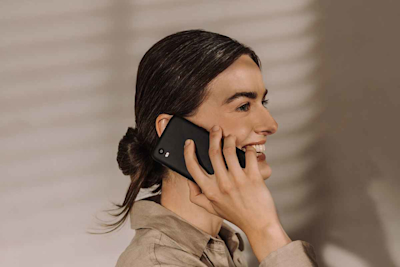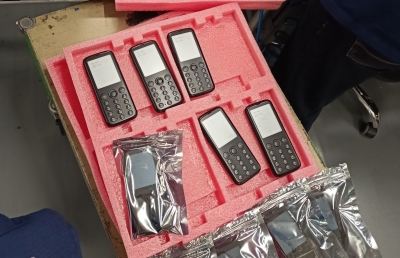
Digital Wellness Festival 2019
Mudita had the opportunity to be part of the first Digital Wellness Festival (DWF) 2019 in London, England. The DWF is an international conference about best practices and future trends in digital wellbeing. We wanted to share some of the key messages we took home with us after this inspiring experience.
How can we reduce the time we spend online?
One way we can reduce our time spent online is to observe the habit of constant phone checking. Another one is not to feel pressure that we need to respond to every message or comment immediately.
We need to set clear expectations among our friends and family so that they are made aware that we are trying to reduce the time spent on our phones. Setting aside a dedicated time to deal with messages, will help them respect our decision and they won’t get mad at us when we respond later. It may even inspire them to use their devices less as well.
The third panel at DWF was on ‘Digital Wellness & Community’ Susan Reynolds from Parentzone, Gary Todd from Famiio, Simon Puleston Jones from WokenUp, Janice Taylor from Mazu and a presentation by Jonathan Garner, the CEO of Mind Over Tech.
Digital wellbeing is already the biggest moral, political challenge of our time. Technology has come such a long way in such a short amount of time that as a society, we got very used to it without considering how this information overload will influence us.
According to Ian Macrae’s presentation ‘Ofcom Connected Behaviour in a Constantly Connected World’ there are a lot of great statistics about the UK’s use of technology. A new report will be released soon but there are a number of bad habits becoming commonplace. Binge watching has become a norm and spoiler alert, people feel as though they need to stay updated because their friends might talk about popular binge watch choices and share spoilers.
The inherent need to feel as though we’re part of a group is problematic when it comes to technology as the fear of missing out or FOMO is intensified. During the presentation, it was shown that on average, people checked their phone every twelve minutes. In 2015, we reached the point where people started accessing the internet on their smartphones more than on other devices, for the first time.
Even though there are age restrictions to open an account on social media, statistics show a different picture that children are entering earlier than that. This is largely down to parents sharing photographs of their children online, without thinking, showing the child all of the likes and comments etc. which simultaneously causes the child to feel the same thing that adults feel when receiving notifications.
Children learn by example and it’s important that parents protect their children from social media and the entire ‘selfie culture’ that surrounds it. It’s also good to remember that if a child is under five years old, it is not recommended that they use a phone or tablet, at all.
What can we do to encourage digital wellbeing?
Technology is the enabler and amplifier, that’s why it’s amplifying people’s emotions. We’re more connected than ever and we’re also more emotional, we consume content that makes us happy, or sad, angry or excited, day in, day out. It’s a rollercoaster. Digital wellbeing among children remains a top concern. If we are constantly checking our smartphones, our children will do the same. As parents, we need to lead by example. A good practice is not to use our smartphones when we talk or play with our children.
The festival brought to light an interesting point about gaming. One of the reasons it is so addictive is because of the fact that people create their own environment, which they can control, unlike in real life. When it comes to digital parenting, children feel as though their digital wellbeing is yet another thing they have to be good at, on top of a combination of societal pressure, parents and school work, which is really stressing them out.
During the keynote ‘The End of Digital Wellbeing?’ Rohan Gunatillake (Mindfulness Everywhere, Buddhify) discussed meditation using apps becoming yet another passive consumption of content. In the US, medical care is a market, not a public service like in Europe.
Business models such as those used in the US including meditation apps are not created with human wellbeing at the centre of their strategy. He goes on to say that “being OK shouldn’t be a luxury.” This was a really important point. Imagine the push notifications that make you feel bad for not meditating today. Surely that defies the point. The next generation of meditation apps will have a social aspect, as Gunatillake states meditation is “better as a team sport”.
In an ideal world, how does our relationship with technology look?
Most of us need to learn how to set boundaries so that we control our devices, rather than letting them control us. The most striking points from the data relating to device addiction is how fragmented our lives can become. This fragmentation can have the biggest influence on our wellbeing and cognitive abilities. We’re more easily distracted now than ever before.
We need to test out the most effective techniques which work for us, as individuals, so that we can limit our device usage. However, this is easier said than done. There are several methods available that can help us make better choices and at some point, we hope that these features, will become commonplace in the technology market.
Bhutan’s Gross National Happiness Index was an interesting point which was raised at DWF, every policy goes through that index instead of the GDP. We should be expressing the urgency of the way mobile device addiction has really infiltrated our lives. Everyone knows at least one other person who uses their phone a little bit too much. Perhaps we should start an “Attention Rebellion” like the kind happening for climate change. Otherwise, we’re just talking and things are moving too slowly. We need less talk and more action.
Steps to change your relationship with technology:
Observe
Reflect
Experiment
Observing our own behaviour, reflecting upon it and experimenting with the ways in which we can change this behaviour is key to finding a better balance. For example, if you notice that you’re easily distracted by particular notifications, consider why they trigger this reaction in you, try switching them off and then analysing the way you feel without those distractions. Take everything at your own pace, step by step.
During the keynote presentation from Dr. James Williams (Oxford University) ‘This Mysterious New Sun’, he mentioned something called ‘Minimal Viable Morality’ (MVM). MVM seems to be the approach companies take when designing technology as the goals of the applications are set up by large corporations with profits in mind. Their interests are not always aligned with the user’s goals in mind. We interviewed Jacek Siadkowski, the founder of Gerere, who goes into more detail about the ways in which companies can become more human-centric.
Our wish for technology, is for devices to be created with helping people at the heart of their purpose. What is your wish for technology?
Is there anything you’d like to add, have we missed anything? If you’re interested in sharing your experiences with us or writing a guest post for us, send us an email via hello@mudita.com!
Please feel free to get in touch via social media (send us some photos or videos too), you can find us on Facebook, Twitter and Instagram, let’s connect! To learn more about Mudita, take a look at our website and our other posts.
If you enjoyed reading this article, please share and recommend it!
Related stories

News for Our N. American Backers: Kompakt is Shipping Next Week!
Mudita Kompakt is shipping to North America! Get the latest updates on delivery, tariffs address deadlines, and our commitment to our North American Backers.

Final NPI Update: firm mass production & shipping dates
We know you’re all looking forward to receiving your Mudita Pure, so we have some firm mass production & shipping dates to share with you.

Our Digital Lives: The Power of Privacy
Consumers are expecting privacy, and if companies fail to provide adequate safeguards, they will find someone who can.
If you'd like to receive the best stories from our blog, keep up to date with our progress and get notified about our product releases and special discounts.